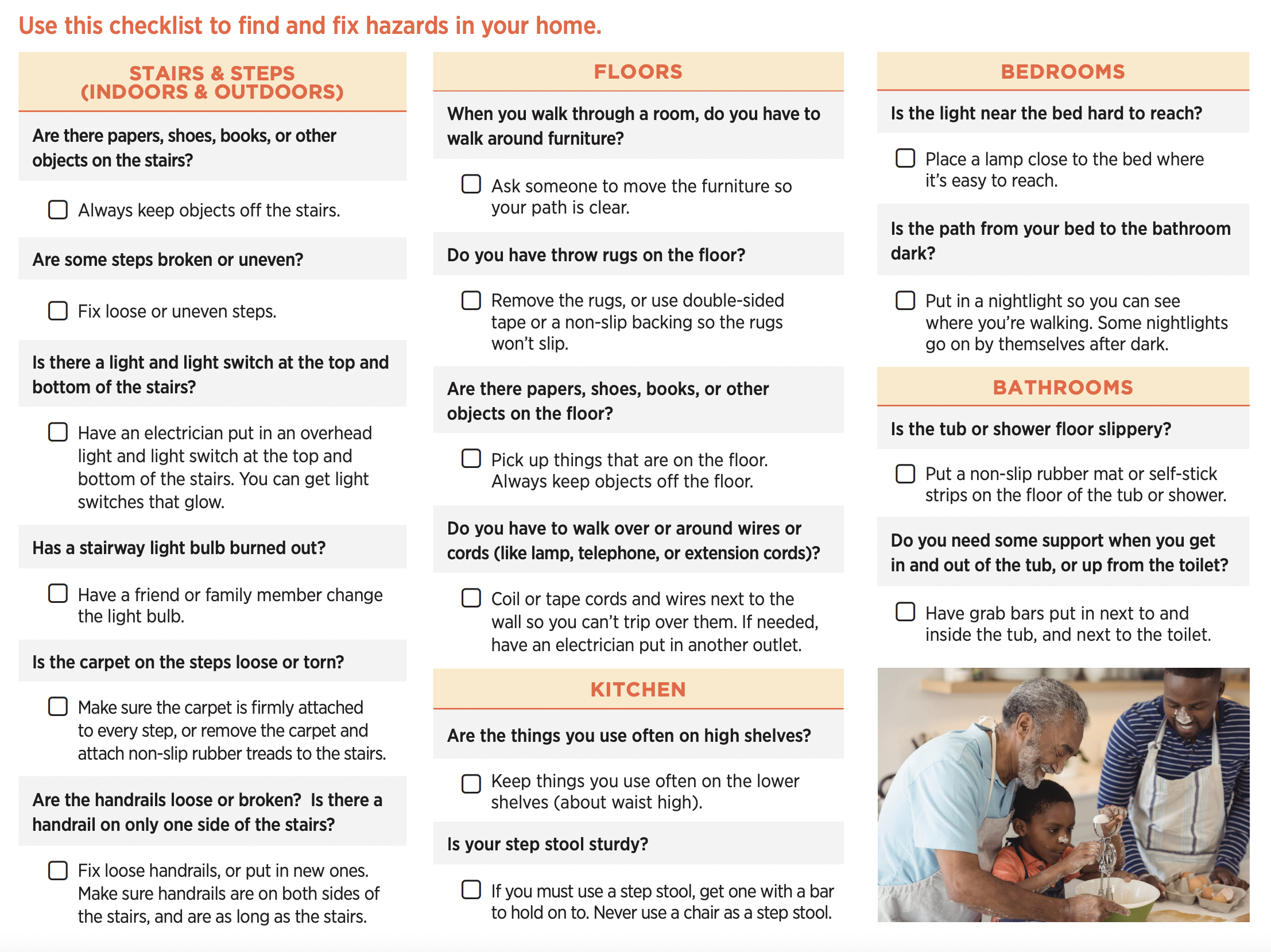The Ultimate Guide To Dementia Fall Risk
The Ultimate Guide To Dementia Fall Risk
Blog Article
Indicators on Dementia Fall Risk You Need To Know
Table of ContentsGetting My Dementia Fall Risk To WorkDementia Fall Risk Can Be Fun For EveryoneNot known Facts About Dementia Fall RiskHow Dementia Fall Risk can Save You Time, Stress, and Money.Fascination About Dementia Fall Risk
In the community, insufficient street illumination or unsafe creeks and land fills might also trigger mishaps. Autumns Risk Evaluation Device (FRAT) is a 4-item falls-risk testing device for sub-acute and property treatment. The FRAT has 3 sections: fall danger status, threat aspect list, and activity strategy. A Fall Risk Condition includes information regarding background of current falls, drugs, mental and cognitive standing of the person.If the client scores on a threat factor, the equivalent number of factors are counted to the client's loss threat rating in the box to the far. If an individual's loss threat rating amounts to five or higher, the individual is at high danger for drops. If the person scores only 4 points or reduced, they are still at some threat of falling, and the nurse should use their finest scientific analysis to manage all loss danger variables as part of an alternative treatment plan.
These typical methods, as a whole, assist develop a secure atmosphere that lowers unintended falls and marks core preventative measures for all patients. Signs are essential for individuals in danger for drops. Doctor require to recognize who has the condition, for they are accountable for executing activities to promote person security and protect against drops.
The Best Guide To Dementia Fall Risk
For instance, wristbands must consist of the individual's last and first name, date of birth, and NHS number in the UK. Details should be printed/written in black against a white history. Only red shade needs to be utilized to signify unique patient standing. These recommendations are constant with existing advancements in patient identification (Sevdalis et al., 2009).
Items that are too far might require the patient to reach out or ambulate needlessly and can possibly be a danger or add to drops. Aids protect against the patient from heading out of bed with no aid. Registered nurses reply to fallers' call lights faster than they do to lights initiated by non-fallers.
Visual impairment can greatly trigger falls. Hip pads, when worn appropriately, may minimize a hip crack when fall occurs. Keeping the beds closer to the floor lowers the risk of falls and serious injury. Putting the bed mattress on the floor significantly reduces loss threat in some health care setups. Low beds are made to lessen the distance a client drops after relocating out of bed.
Dementia Fall Risk Fundamentals Explained
Individuals that are tall and with weak leg muscles that try to rest on the bed from a standing placement are most likely to fall onto the bed due to the fact that it's also low for them to reduce themselves safely. If a high patient attempts to obtain up from a low bed without help, the client is likely to drop back down onto the bed or miss out on the bed and drop onto the flooring.
They're created to promote timely rescue, not to avoid drops from bed. Distinct alarm systems can also advise the person not to get up alone. Making use of alarm systems can also be an alternative to physical restrictions. In addition to bed alarms, enhanced guidance for risky clients likewise might assist protect against falls.

Individuals with an evasion stride find more info boost fall opportunities dramatically. To reduce loss threat, shoes ought to be with a little to no heel, slim soles with slip-resistant step, and sustain the ankles. Suggest individual to make use of nonskid socks to avoid the feet from moving upon standing. Encourage clients to put on proper, well-fitting shoesnot nonskid socks for ambulation.
The Only Guide to Dementia Fall Risk
In a research, homes with appropriate lights record less drops (Ramulu et al., 2021). Improvement in lighting at home might lower fall rates in older adults.

Caretakers are effective for assuring a safe, secured, and safe environment. Research studies demonstrated extremely low-certainty evidence that sitters minimize autumn danger in intense care medical facilities and only moderate-certainty that options like video tracking can decrease caretaker usage without increasing autumn risk, suggesting that sitters are not as helpful as originally believed (Greely et al., 2020).
Getting My Dementia Fall Risk To Work

Raised physical conditioning lowers the danger for falls and limits injury that is sustained when loss takes place. Land and water-based exercise programs might be likewise beneficial on equilibrium and gait and thus reduce the danger for falls. Water exercise may contribute a positive about his benefit on equilibrium and gait for women 65 years and older.
Chair Rise Workout is a straightforward sit-to-stand workout that helps reinforce the muscle mass in the thighs and butts and enhances mobility and independence. The goal is to do Chair Rise workouts without utilizing hands as the client becomes more powerful. See sources area for an in-depth instruction on just how to carry out Chair Increase exercise.
Report this page